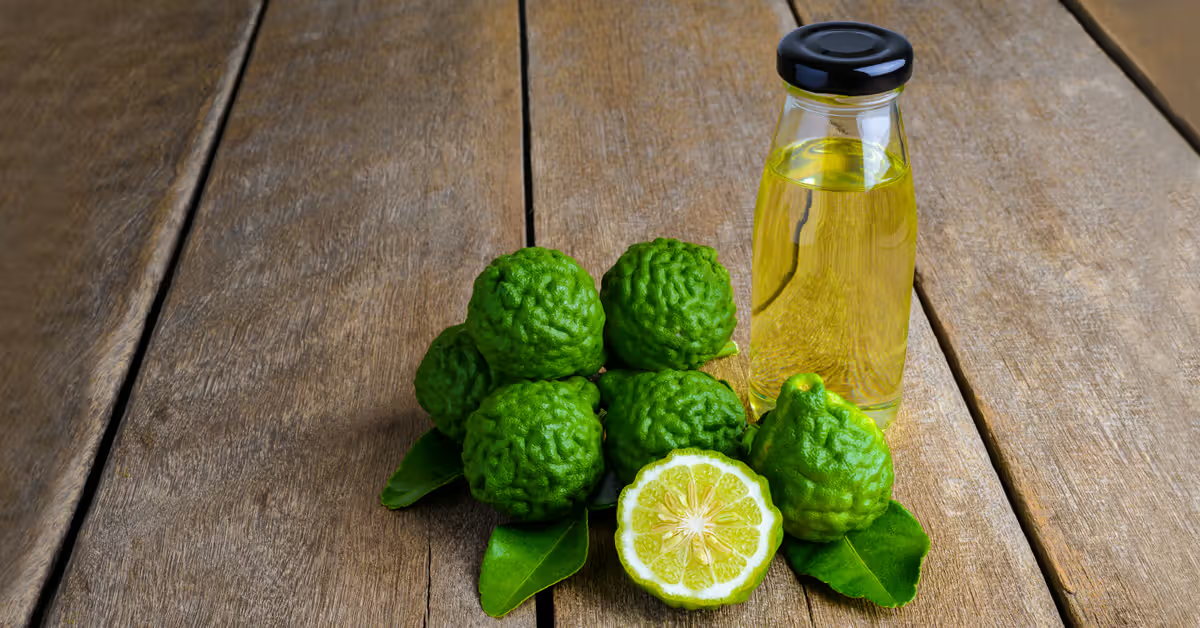Bergamot (Citrus bergamia) is a highly aromatic citrus fruit known for its distinctive scent and powerful therapeutic properties. Sourced primarily from the Calabria region in southern Italy, bergamot is prized for its essential oil, flavonoid-rich extract, and its role in everything from aromatherapy and skincare to cholesterol control and mental wellness. In this in-depth guide, we explore the full spectrum of bergamot’s uses, health benefits, and how it stands out as a natural health enhancer.
What Is Bergamot?
Bergamot is a citrus fruit, typically yellow or green like a lime, believed to be a hybrid between a bitter orange and a lemon. Its rind is the primary source of bergamot essential oil, widely used in perfumes, teas (notably Earl Grey), and natural health products.
Unlike sweet citrus fruits, bergamot has a bitter and slightly sour flavor. While it is rarely eaten raw, its peel and extract are used in a variety of applications, especially in pharmaceutical, cosmetic, and nutraceutical formulations.
Bergamot Essential Oil: Nature’s Potent Elixir
Aromatic Powerhouse
Bergamot essential oil is obtained through cold-pressing the peel of the fruit. It has a refreshing, citrusy scent with floral undertones and is renowned in aromatherapy for its mood-lifting and stress-reducing properties.
Uses in Aromatherapy
Alleviates anxiety and depression
Reduces cortisol levels
Promotes relaxation and sleep quality
Boosts emotional well-being
Its linalool and limonene content provides soothing effects on the nervous system, making it a favorite for diffusers and massage oils.
Top Health Benefits of Bergamot Extract
Recent scientific interest has focused on bergamot polyphenolic fraction (BPF) a highly concentrated extract standardized for its flavonoid content, including neoeriocitrin, naringin, and brutieridin.
1. Supports Heart Health and Lowers Cholesterol
Bergamot extract has been shown in clinical studies to:
Reduce total cholesterol and LDL (“bad”) cholesterol
Increase HDL (“good”) cholesterol
Lower triglycerides
It achieves this by modulating HMG-CoA reductase, the same enzyme targeted by statin medications—without the side effects. Bergamot is often recommended for those who cannot tolerate statins due to muscle pain or liver enzyme elevation.
2. Regulates Blood Sugar and Metabolism
Bergamot flavonoids help improve insulin sensitivity and support glucose metabolism, making it a promising supplement for individuals with type 2 diabetes or metabolic syndrome.
Studies have demonstrated:
Reduced fasting glucose levels
Enhanced insulin response
Decreased abdominal fat and waist circumference
3. Anti-Inflammatory and Antioxidant Activity
The rich polyphenol content in bergamot extract helps combat oxidative stress, reduce inflammation markers like CRP, and protect against free radical damage.
Its bioactive compounds are especially beneficial for:
Reducing chronic inflammation
Slowing the aging process
Supporting liver detoxification
4. Antimicrobial Properties
Bergamot oil exhibits strong antibacterial and antifungal effects. It is particularly effective against:
Staphylococcus aureus
Candida albicans
Escherichia coli
These properties make bergamot useful in natural cleaning products, topical creams, and mouthwashes.
5. Mental Health and Mood Support
Used in clinical aromatherapy settings, bergamot essential oil has shown effectiveness in:
Reducing anxiety and depression symptoms
Improving mood in post-operative patients
Enhancing cognitive clarity
Its natural calming effect stems from its influence on serotonin and dopamine pathways.
How to Use Bergamot
1. As a Supplement
Bergamot extract capsules (typically standardized to 38% polyphenols) are widely available and used for cardiovascular and metabolic support. Suggested dosage ranges from 500 mg to 1,000 mg daily, usually taken before meals.
2. In Aromatherapy
Use bergamot oil in:
Diffusers for uplifting home or office environments
Massage oils when diluted with a carrier (e.g., coconut or almond oil)
Baths for relaxation and muscle tension relief
Caution: Bergamot oil is photosensitive and can increase the risk of sunburn. Avoid sun exposure for at least 12 hours after applying it to the skin.
3. In Skincare
Bergamot oil helps with acne, eczema, and psoriasis due to its antibacterial and anti-inflammatory properties. It is often found in:
Facial serums
Cleansers
Natural deodorants
Ensure the oil is diluted to avoid irritation or allergic reaction.
Potential Side Effects and Precautions
While bergamot is generally safe when used as directed, certain precautions must be noted:
Essential oil should not be ingested due to its concentrated nature.
Photosensitivity may occur with topical use.
Drug interactions: Consult a healthcare provider if you are on statins, blood thinners, or diabetic medications.
Rare cases of bergapten-related phototoxicity have been reported with excessive exposure.
Bergamot in Earl Grey Tea
Perhaps the most popular consumer use of bergamot is in Earl Grey tea, where black tea leaves are infused with bergamot oil. Aside from its refreshing citrus aroma, this tea is believed to:
Aid digestion
Boost mood
Provide antioxidant benefits
Note: The amount of bergamot in tea is minimal and not comparable to medicinal extracts.
Bergamot for Weight Management
Ongoing studies have indicated that bergamot extract may reduce visceral fat, especially in individuals with metabolic syndrome. This effect is likely due to:
Improved lipid metabolism
Enhanced insulin sensitivity
Reduction in inflammation
Taken consistently with a healthy diet, bergamot may assist in body composition improvement and weight loss support.
Sustainability and Sourcing of Bergamot
The finest bergamot is grown in Calabria, Italy, where unique environmental conditions yield the highest oil quality. Ethical sourcing and sustainable farming practices are crucial to preserve:
Biodiversity
Soil health
Economic sustainability for local farmers
When purchasing bergamot products, look for certifications such as organic, non-GMO, and third-party tested.
Conclusion
Bergamot stands at the intersection of traditional herbal wisdom and modern science, offering a broad array of benefits for cardiovascular health, mental wellness, skincare, and overall vitality. Whether used as a supplement, essential oil, or aromatic ingredient, bergamot continues to gain recognition as one of nature’s most versatile and valuable remedies.

